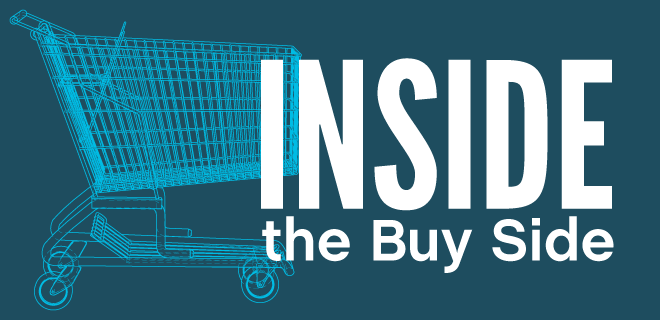
Discover how extended payment terms are stalling ad tech innovation as credit tightens and brands like Keurig Dr Pepper push for longer cycles. Explore the ripple effects on vendors, agencies, and the entire ad tech ecosystem, and learn about alternative financing solutions that could offer a lifeline in this challenging landscape.
New platforms, data-driven targeting strategies, and cutting-edge measurement solutions are the lifeblood of the ad tech industry. However, as credit remains tight, payment terms from major advertisers have gotten longer — especially thanks to the growing SPO trend and more intermediaries going directly.
Unfortunately, longer payment cycles are becoming more common, threatening to stifle momentum and create additional cash constraints for companies powering the next era of ad tech.
Keurig Dr Pepper’s Controversial Move: A 360-Day Payment Term Shockwave
The most notable example came from Keurig Dr Pepper (KDP).
In 2023, the beverage giant requested extended payment terms (up to 360 days) from its agencies. The 360-day terms required agencies to wait up to a year to receive full payment, but they also offered low-cost financing so they could access funds sooner. Suppliers could self-fund the requirement or participate in KDP’s Supply Chain Financing Program with Prime Revenue (a capital solution).
As is usually the case, the closer to the advertiser a company is in the supply chain, the longer the payment terms. However, this was an unheard-of proposition in the advertising ecosystem. So much so that these terms were highlighted and passed around within the industry, gathering backlash from thought leaders and the media about the potential negative consequences and concern about the precedent it would set.
Theoretically, the extended payment terms could have created a significant ripple effect throughout the ad tech ecosystem – and it was an eye-opening moment for many.
Downstream Effects: Vendors and Agencies Struggle with Extended Payment Terms
When a brand like KDP demands longer payment terms, the burden falls on the vendor and inevitably trickles downstream to their supply partners. The vendor must pay upfront for ad space, media buys, and the technology fees associated with running the campaign.
Then, they extend terms to their vendors, albeit not usually commensurate with their terms, and raise rates or margins to offset the newly added costs they’ll incur. This upfront cost creates a severe cash flow strain for vendors and agencies, especially smaller or independent shops with limited access to capital compared to their larger competitors.
"The lack of liquidity makes them more dependent on cash flow and less likely to take risks they otherwise would have, severely limiting their growth potential and ultimately stifling momentum at a critical time."
With cash tied up and waiting for client payment, supply partners have less to invest in areas critical for long-term success. This is referred to as opportunity cost, or the cost of choosing one option over an alternative that may have a better yield. When resources are limited, this becomes a much more pressing quandary, and opportunities for growth, innovation, and other initiatives take a back seat.
Companies may be forced to make hard decisions, like making payroll or taking on new business. The lack of liquidity makes them more dependent on cash flow and less likely to take risks they otherwise would have, severely limiting their growth potential and ultimately stifling momentum at a critical time.
Reality Check: Liquidity Challenges in Ad Tech
In some form or another, payments have long been a central concern within media and advertising. In many ways, payment trends serve as an industry barometer, often highlighting the broader health of the market. Demand partner payments, or lack thereof, have shaped ad tech throughout history, spurring hot-button topics like downstream transparency and sequential liability.
"Risk rises as liquidity falls. Terms get longer, offsets get bigger, and companies go under."
While these topics are pertinent, they are tangential to the cornerstone issue of liquidity. Of course, no amount of capital will save us from bad actors, gross negligence, or abhorrent mismanagement. However, that is more of a question of the human condition rather than a treatable industry diagnosis.
While the above risks will be philosophized for eternity, their inverse correlation to liquidity remains relevant. Risk rises as liquidity falls. Terms get longer, offsets get bigger, and companies go under.
Navigating the Liquidity Squeeze: Financing Options for Survival and Growth
Making matters worse is the self-perpetuating nature of a tightening credit environment. As risk rises, lenders and investors become more averse, seeking safer options to deploy their capital. This, in turn, ultimately exacerbates and compounds the issue. At worst, some companies are no longer eligible for their funding.
At best, their funding gets more expensive, and their terms become even more restrictive.
While there is no catch-all answer, alternative financing solutions can help. Downstream partners can leverage solutions to access flexible capital on demand, bringing certainty to their cash flow and enabling them to grow on their terms. However, be aware that not all revenue-based financing options are alike. Industry knowledge and flexibility are frequently overlooked when reviewing capital partners, so pay close attention to penalties, covenants, and recourse.
If nothing else, it is essential to determine how complicated their funding process is and, ultimately, if they will grow with you.